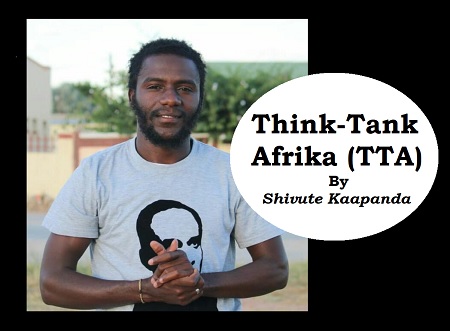
The difference between government and the state
By Shivute Kaapanda [Think Tank Africa]
In the world characterized by lack of political literature not everybody can properly distinguish the terms “State” and “Government”.
Many have used these two terms interchangeably and synonymously which is incorrect. King Louis XIV of France fell victim to this error when he said “I am the state”. Arguably what he meant was the government of the state whose authority he possessed.
Let us rely on political scientists to educate us further on the clear distinction between the state and government. The state has four elements namely: population, territory, government and sovereignty.
Government is a narrow concept and it’s simply an element of the state. It’s rightly said that the state is an organic concept in which the government is a part.
Commentators such as Willoughby indicated that “by the term government is designated the organization of the state machinery through which its purposes are formulated and executed.
Government is an agent of the state, that is why in a democracy it is considered as a servant and the state a master.
Furthermore, government can be compared to a brain of a living organism; what a brain is to a human is what the government is to the state.
The state is more or less permanent and continues from time immemorial but the government is temporary because it changes frequently. A government may come and go, but the state continues forever. The state is generally composed of all citizens but all of them are not members of the government.
The government consists of only few selected citizens. In a democracy the organs of the government are executive, legislature and the judiciary. The few selected persons will run these three organs of the government therefore the state is a much broader concept than the government is.
Furthermore, the membership of the state is compulsory but not that of the government.
The state possesses sovereignty, its authority is absolute and unlimited. Its power cannot be taken away by any other institution. Government possesses no sovereignty, no original authority but only derivative powers delegated by the state through its constitution. Powers of government are delegated and limited.
The state is an abstract concept whereas government is a concrete one. Nobody sees the state and the state never acts. The government is a physical manifestation and it acts for the state. It is comprised of a definite group of persons who can be seen, known and questioned.
All states are identical in character and nature. The characteristics of the state do not undergo changes but governments are of different types and they may vary from state to state.
Various political scientists have given different classifications of governments. Ancient Greek philosopher Aristotle had classified government into monarchy, aristocracy and democracy.
While Marriot has classified government into parliamentary or presidential, unitary and federal governments.
Therefore this is not a uniform pattern of government but the state is a universal institution having one single form with its four essential elements namely population, territory, government and sovereignty.
Lastly, the citizens of the state possess rights to go against government and not against the state.
The state only acts through the government and the government may commit mistakes and not the state therefore the citizens have only rights to go against government, moreover the state consists of citizens therefore for the citizens to go against the state will mean going against themselves which is an impossible proposition.
The state is therefore an indestructible union of citizens having the chief characteristics of permanence and continuity while government is only a part of the state.
– Shivute Kaapanda is an Activist writer and author of the book titled “The Conscious Republic”. He writes from Eyanda Village.





